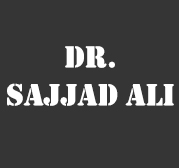• Head Trauma:
It is generally treated by neurosurgeons while sequelae of this trauma are generally treated by neurologists or any expert in the medicine for rehabilitation.
• Strokes:
Strokes although are managed and checked under local hospitals or internal medicines, but with the advancement in the field of vascular neurology and interventional neurologists there is always an emerging need for the stroke specialist who can check the damaged area and can offer essential medication. Also the joint commission establishment has increased the need of neurologists in stroke departments in the hospitals.
• Headaches and migraines:
Generally for the treatment of headaches and migraines, patients consult general physicians but sometimes depending on the severity of case, neurosurgeons are also referred. Same is the case with the patients who are suffering from acute sciatica.
• Sleep disorders:
For the treatment of sleeping difficulties and abnormalities, usually pulmonologists are consulted which will analyze the sleep pattern and suggest the necessary actions. In some cases psychiatrists are also consulted especially if a person is suffering from anxiety or depression disorders.
• Cerebral palsy:
It is generally treated by pediatrician while neurologists are consulted with the growing age.
• Rehabilitation physicians:
They normally treat the patients who are suffering from neuromuscular diseases with the help of certain latest innovations like electro diagnostic studies, EMG and the studies of nerve conduction.
• Geriatric medicine:
The age-related disorders like Parkinson’s disease, dementia, strokes and gait disorders are managed by geriatric medicine specialists.
• Clinical neuropsychologists:
They generally evaluate the behavioral pattern of brain, plan the rehabilitation policies, determine cognitive strength and weaknesses etc.
